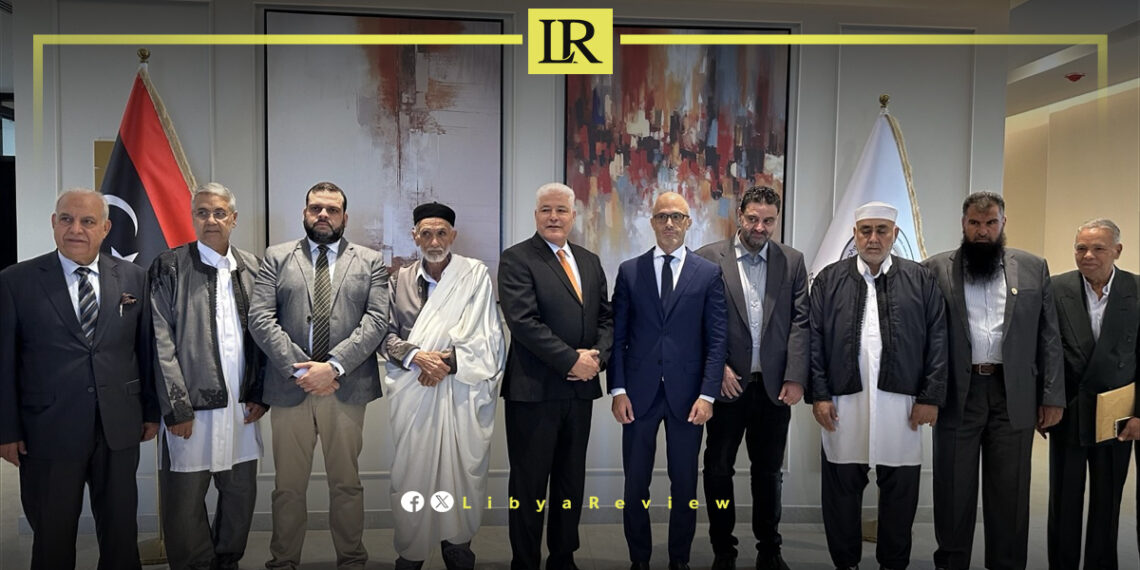The European Union Ambassador to Libya, Nicola Orlando, emphasised the importance of preserving the ceasefire and resolving conflicts through dialogue, during a series of meetings held on Monday in Tripoli with key local stakeholders.
In an official statement, Orlando said he met separately with two delegations: one included members of the Social Council of Souq Al-Jumaa and the mayors of Souq Al-Jumaa and Ain Zara, while the other comprised representatives of the Social Council of Misrata. The meetings were part of the EU’s ongoing consultations on the political and security situation in the Libyan capital.
The ambassador stressed the need to support the efforts of the United Nations Support Mission in Libya (UNSMIL) to ease tensions and promote lasting stability. He reiterated the EU’s commitment to backing a comprehensive and feasible political process, facilitated by UN envoy Hanna Serwaa Tetteh.
Orlando noted that the discussions also addressed current security challenges and the EU’s potential role in helping to overcome them. He confirmed a shared agreement with Libyan parties on the importance of continued coordination and consultation in the coming weeks.
Libya has been in chaos since a NATO-backed uprising toppled longtime leader Muammar Gaddafi in 2011. The county has for years been split between rival administrations.
Libya’s economy, heavily reliant on oil, has suffered due to the ongoing conflict. The instability has led to fluctuations in oil production and prices, impacting the global oil market and Libya’s economy.
The conflict has led to a significant humanitarian crisis in Libya, with thousands of people killed, and many more displaced. Migrants and refugees using Libya as a transit point to Europe have also faced dire conditions.
The planned elections for December 2021 were delayed due to disagreements over election laws and the eligibility of certain candidates. This delay has raised concerns about the feasibility of a peaceful political transition.
Despite the ceasefire, security remains a significant concern with sporadic fighting and the presence of mercenaries and foreign fighters. The unification of the military and the removal of foreign forces are crucial challenges.


